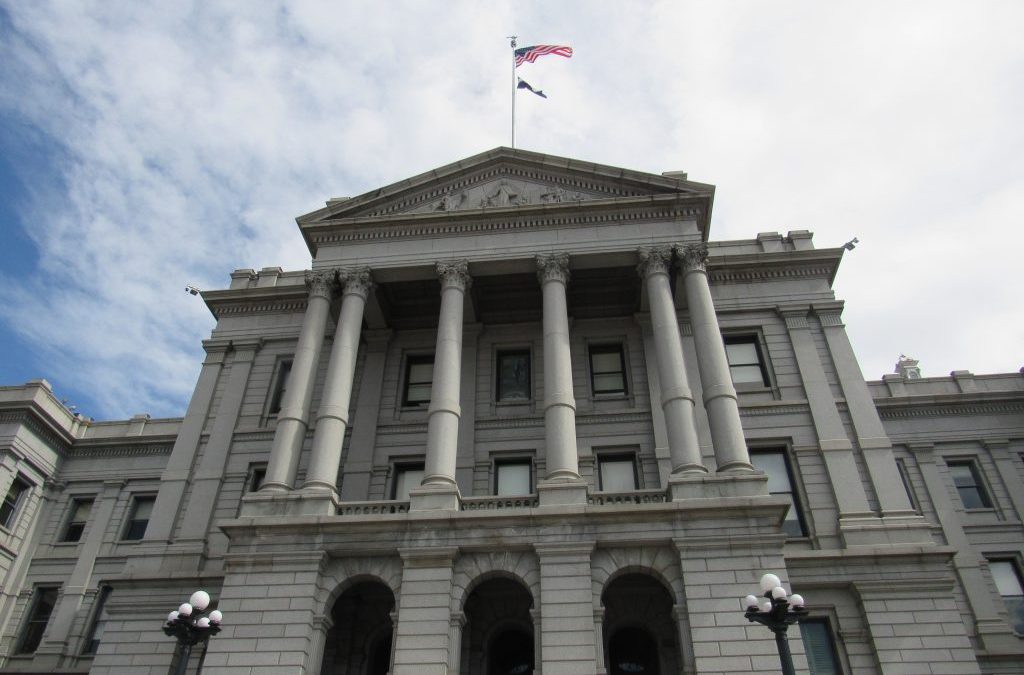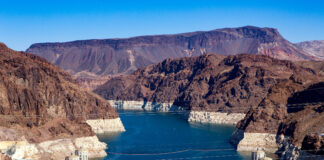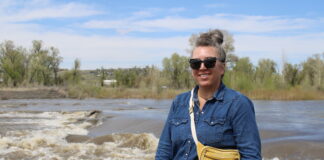
Cash for the Colorado Water Plan and other projects took a modest hit this year, as state lawmakers sought to cut $3.3 billion to compensate for one of the largest deficits in its history.
But water officials said the pain could have been worse, with loan and grant funds for major water projects such as the Arkansas Valley Conduit preserved and furloughs of Colorado Water Conservation Board staffers avoided for now.
Rep. Dylan Roberts, D-Avon, said lawmakers worked hard to maintain funding during a time when massive cuts across state government were being made.
“It was important to craft a budget that addressed the COVID-19 financial crisis,” he said, “and to continue to invest in our water infrastructure regardless of what might be going on otherwise.”
As the legislature wrapped up its highly compressed session last week, lawmakers approved $12.25 million from the CWCB’s Construction Fund for the state water plan, the amount the CWCB recommended. The fund derives its cash from water project loan repayments, earned interest, and federal mineral royalty distributions.
$7.5 million of those earmarked funds will pay for water storage and supply, conservation and land use planning, education and outreach, agriculture, and environment and recreation projects.
Another $4 million will continue to fund watershed restoration activities, the amount spent last year, and $750,000 is earmarked to fund alternative agricultural transfer projects, down $250,000 from last year.
Rep. Marc Catlin, R-Montrose, said this year’s funding simply keeps “the commitments the state of Colorado has already made in regard to projects that are ongoing and in progress.”
But there was no new general fund support for the Colorado Water Plan.
In 2019 the General Assembly appropriated $8.3 million from the general fund to support the water plan over three years, the first time since its adoption in 2015 that general fund revenue was used toward the plan’s implementation.
CWCB spent $3 million of that in the 2019/2020 fiscal year to bolster water plan implementation grants and it will spend the balance over the next two years. After that, continued general fund support is uncertain until the state’s economy rebounds, officials said.
Also cut was more than $850,000 from the $1.7 million general fund appropriation made last year to conduct public outreach and feasibility studies on a massive Colorado River conservation project. If the program, known as demand management, is formally adopted, it is anticipated that it would pay farmers and other water users to voluntarily reduce their use of Colorado River water so that it can be stored in Lake Powell as a hedge against future Colorado River Compact shortfalls.
The CWCB’s Amy Ostdiek, deputy section chief of interstate, federal and water information programs, said her section has been able to save enough money on travel costs and other expenses this year to continue studying demand management over the next year.
Major funding for the long-awaited Arkansas Valley Conduit was also preserved. The conduit is designed to bring clean drinking water to Eastern Plains communities whose wells have been contaminated by salts, nitrates and other elements..
“We’re obviously very grateful that the General Assembly retained funding for the [Conduit],” said Chris Woodka, senior policy and issues manager for the Southeastern Colorado Water Conservancy District in Pueblo. “The state funding, coupled with significant federal funding approved by Congress earlier this year, will allow construction of the [Conduit] to begin when design activities are completed over the next two years.”
Larry Morandi was formerly director of State Policy Research with the National Conference of State Legislatures in Denver, and is a frequent contributor to Fresh Water News. He can be reached at larrymorandi@comcast.net.
Fresh Water News is an independent, nonpartisan news initiative of Water Education Colorado. WEco is funded by multiple donors. Our editorial policy and donor list can be viewed at www.wateredco.org.
This story originally appeared on Fresh Water News on June 24, 2020.
The Water Desk’s mission is to increase the volume, depth and power of journalism connected to Western water issues. We’re an initiative of the Center for Environmental Journalism at the University of Colorado Boulder. The Water Desk launched in April 2019 with support from the Walton Family Foundation. We maintain a strict editorial firewall between our funders and our journalism. The Water Desk is seeking additional funding to build and sustain the initiative. Click here to donate.





